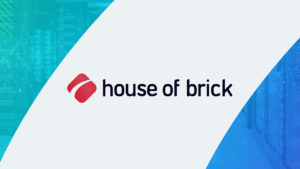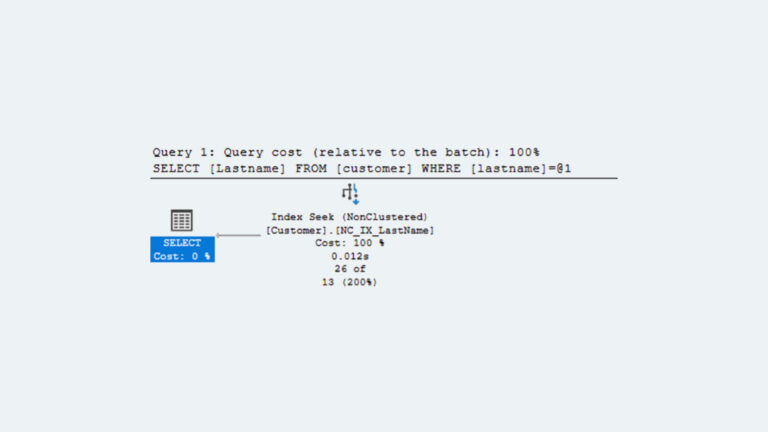Oracle has had a busy 2021 in the federal court system suing customers and third parties for copyright infringement relating to software audits, attacking maintenance & support competitors such as Rimini Street, and defending itself and its subsidiary NetSuite for several failed ERP installations. Tactical Law will discuss here what happened with Oracle licensing related litigation in 2021.
Alleged Hosting and Embedded License Violations and Audit Related Cases
Within the last two years Oracle has filed 3 cases for copyright infringement in the Northern District of California that also raised claims of license violations involving hosting or embedded Oracle software licenses.
Oracle America, Inc. vs. Envisage Technologies, LLC
Oracle sued Envisage on May 11, 2021 for copyright infringement. Oracle contended that Envisage had not bought enough licenses from Oracle to cover its use of Oracle database software for cloud hosting of its Acadis Readiness Suite on Amazon’s RDS platform. Oracle used public facing documents found on Envisage’s own website along with documents that may have been posted by governmental entities or acquired under the Freedom of Information Act, to claim that Envisage’s use of Oracle database software was well in excess of the number of licenses it had purchased from Oracle. The Complaint brought by The Norton Firm, alleged that Envisage’s infringement was willful and sought at lease $3 million in damages. Oracle claimed in the Complaint that Envisage declined to engage in discussions, most likely in our opinion, because Envisage’s contract was with AWS under the RDS license included model and not Oracle. We noted at the time of filing that we believed that Oracle is investing significant resources to investigate AWS customers using both the RDS license included and bring your own license models. Envisage hit back with its own counterclaim seeking declaratory relief for non-copyright infringement and unjust enrichment. The case settled and a dismissal was filed on August 23, 2021, only a little over three months after the filing of the initial lawsuit. The lesson learned is that companies contracting with AWS but still using Oracle software, cannot escape the possibility of audit demands or lawsuits by Oracle involving Oracle Database and other software. Importantly, Envisage claimed that AWS represented that Envisage could use Oracle software to host and would still be compliant using the RDS license included model. We don’t know what representations were actually made, but we do not recommend relying on AWS representations alone as to whether you are compliant. Another lesson learned—look out if you are a company that embeds Oracle solutions in your product. Oracle may be embarking on a strategy of going after you. Time will tell.
Oracle America, Inc. v. Perry Johnson & Associates, Inc.
Although filed in 2020, we included this case as it also involves hosting and we may be seeing a possible pattern involving hosting or embedded licenses. On behalf of Oracle, The Norton Law Firm filed suit for copyright infringement on April 30, 2020. The lawsuit involved an Oracle embedded license. Oracle contended that Perry Johnson & Associates, Inc. (“PJA”) infringed Oracle’s copyrights on, among other things, its Enterprise Edition Database (“EED”) and Real Application Cluster (“RAC”) software. Specifically, Oracle alleged that PJA provided hosting services to third parties without a license from Oracle for Oracle Database. Oracle also contended that “PJA’s software architecture – including the number of sockets – exceeds the scope of any license that PJA may have”. PJA licensed its software from an Oracle customer, Arrendale Associates, Inc. (“Arrendale”), which actually contracted directly with Oracle for the embedded license. But rather than sue its direct licensee, Oracle opted to sue Arrendale’s customer, PJA. Oracle may have contacted PJA directly to attempt to ascertain how PJA was using the Arrendale software. Oracle may have asked Arrendale to audit its customer PJA or requested that Arrendale assign its audit rights to Oracle. Oracle embedded license agreements publicly available online do provide for audits of Oracle customers, and also contain provisions whereby Oracle may request assignment of its customers’ rights to audit the ultimate end-user. The parties jointly dismissed the case on June 30, 2020. The joint dismissal does not mention any settlement, but it is likely in our opinion that a settlement was reached to resolve the matter. Even companies that have not contracted directly with Oracle are not immune to lawsuits brought by Oracle to enforce their copyrights.
Another Oracle Case Involving Embedded Software Licenses and Oracle Audits
In 2021 Oracle also filed suit in the Northern District of California in another case involving an embedded Oracle software license. Because Tactical Law is representing the Oracle licensee in that matter, we cannot comment on the litigation.
Sunrise Firefighters Securities Class Action
This case was filed in 2018 and is currently undergoing class certification briefing and the class certification motion is set to be heard in March 2022. Oracle attacked the Complaint with two motions to dismiss, but the court found that Plaintiffs had succeeded in asserting a securities fraud claim by omission. The court reasoned that “[o]nce Oracle started making statements to the public as to why sales of Oracle cloud were increasing, they owed investors a duty to disclose that Oracle’s use of hard ball audit tactics may also have been a material driver of increased cloud sales. By omitting to do so, Plaintiff has stated a plausible securities fraud claim that Oracle may have violated the securities laws by omission. For other blog posts about this interesting case, please see here and here.
Failed Oracle/NetSuite ERP Installation Related Lawsuits
Oracle also had a busy year defending several lawsuits involving failed ERP installations. Many of these lawsuits also involved claims stemming out of financing arrangements through Oracle Credit Corporation (“OCC”). Oracle and its subsidiary OCC have been accused by multiple litigants of concocting a scheme whereby Oracle misrepresented the capabilities of its software and failed to meet its contractual obligations, but assigned the financing agreements to third party banks before Oracle’s breaches and misrepresentations became apparent to its customers. The result of the assignment was that several of these financing companies brought suit against Oracle customers seeking to collect on these assignments despite the fact that the Oracle software did not work for its intended use. These third-party banks filing suit alleged that under California law “come hell or high water” the Oracle licensee needed to pay the third-party bank all of the monies owed under the financing agreement, even though the software never worked. One court in Washington state, without deciding the issue, opined that such an arrangement could cause the Oracle license to be invalid. According to the court: “[t]his clever arrangement seems designed to subdivide the payment and performance aspects of Oracle’s agreement […] into different contracts, thus ensuring payment even if Oracle fails to deliver the promised services. The result is a disturbingly imbalanced transaction that preserves OCC’s ability to terminate [the Oracle licensee’s] rights to the cloud services if it fails to pay but denies [the Oracle licensee] the same opportunity to avoid payment if Oracle breaches. Unfortunately for Oracle, such an arrangement would likely be illusory or lacking in consideration. See 1 WILLISTON ON CONTRACTS § 4:27 (4th ed.) (contracts are illusory where one party can decide for themselves the nature and extent of performance).” Key Equipment Finance v. Barrett Business Services, Inc., NO. 3:19-cv-05122-RBL, 2019 WL 2491893, (W.D of Washington June 14 2019).” Several cases involving these issues are detailed below.
Morse Communications, Inc. v. Oracle & NetSuite
On July 13, 2021, Morse Communications, Inc. (“MCI”) brought suit against Oracle and its subsidiary NetSuite, in the Northern District of California alleging claims for breach of contract, fraud and unfair business practices. MCI entered into a Software as a Service (“SaaS”) subscription agreement with Oracle/NetSuite for among other things, payroll related services. MCI alleged that Oracle had agreed that it need not pay any platform fees until after the “go live” date. MCI also claimed that Oracle represented that its software had all of the capabilities that Plaintiff was seeking, including the critical payroll services. As part of the transaction, MCI entered into a financing agreement with Oracle’s credit arm known as OCC. MCI alleged in its pleading that Oracle’s software never functioned as promised and that Oracle was never able to fix the many problems inherent in the software. According to the Complaint, “Plaintiff regularly requested updates, attended trainings, and made best efforts to work with Defendants in order to satisfy their needs and the Agreement. Plaintiff’s requests and efforts were consistently met with vague responses, unnecessary repeated trainings, missed deadlines, ignored concerns, missing products, and custom development charges due to missing functionality and modules.” The Complaint also alleged that “[t]hroughout Plaintiff’s discussions with Defendants, Defendants’ team frequently indicated that they were unfamiliar with Plaintiff’s project and their own products. Defendants’ team rarely answered Plaintiff’s direct questions about Defendants’ products or next steps, rather they repeatedly stated they “would circle back” or “take note of that issue”. After entering into the contract with Oracle, OCC assigned the financing agreement to Banc of America Credit, which likely threatened to sue MCI for not making payments, even though MCI claimed that the software never worked. Plaintiff dismissed the lawsuit without prejudice on September 13, 2021, prior to Oracle entering an appearance in the lawsuit, probably due to a settlement.
Barrett Business Services v. Oracle
Tactical Law has previously blogged on this very interesting Oracle cloud case here and here and will not reiterate those same details. Instead, a few observations. This lawsuit which was filed in January of 2019 by Barrett Business Services, Inc. (“BBSI”) in San Francisco Superior Court was finally dismissed with prejudice on October 20, 2021, pursuant to a settlement. The case was aggressively litigated by all sides, including the finance company that had received an assignment of the OCC financing agreement. Oracle eventually moved to bifurcate and to try the equitable claims for recission to the court first. The Judge denied Oracle’s motion without prejudice ruling that the San Francisco Superior Court usually leaves decisions about bifurcation to the trial court. Oracle also moved for summary judgment on BBSI’s breach of contract and negligence claims. Companies considering entering into an ERP agreement with Oracle will find Oracle’s arguments instructive. In seeking dismissal of BBSI’s breach of contract claim, Oracle argued that all warranties were disclaimed except (1) that Oracle will make available all of the cloud services ordered by BBSI; and (2) Oracle will provide the cloud services in the manner described in the Service Specifications. Oracle argued that it expressly did not warrant that the cloud services would work in the manner that BBSI required or expected. In short Oracle is arguing that it couldn’t have breached the contract by failing to deliver a workable system because no clause in the contract required that it do so. “Here, and as is plain, BBSI cannot establish that Oracle breached any CSA provision by purportedly failing to deliver to BBSI a “workable integrated ERP solution that could be configured to BBSI’s requirements,” as there simply is no such provision in the CSA.” And to make a finer point on the issue, Oracle argued that Section 17.5 of the cloud agreement states: “[p]rior to entering into an order governed by this Agreement, You are solely responsible for determining whether the Services meet Your technical, business or regulatory requirements” and that the contract’s “express terms thus also affirmatively, and exclusively, place upon BBSI the sole responsibility for determining whether the services it was deciding to purchase would meet its ‘requirements’”. Seems preposterous does it not that Oracle would make such an argument, let alone win the argument? But that is exactly what Oracle did, and the San Francisco Superior court ruled in Oracle’s favor dismissing the contract claim finding that although BBSI alleged that Oracle breached the contract by failing to provide a workable ERP solution configured to BBSI’s requirements, the contract contained no such provision. However, despite this loss, BBSI still retained its fraud in the inducement claim. Two lessons can be drawn from this ruling. First, companies considering entering into a contract with Oracle should think long and hard before agreeing to such a provision, and failing to include more granular requirements for Oracle’s performance. Two, when pleading a breach of contract claim think very carefully about what express and implied claims to include in the complaint, because on summary adjudication a litigant cannot bring up new theories that are not alleged in the Complaint.
Advance Lifts v. Oracle/Netsuite and Banc of America Leasing
This is another lawsuit alleging a failed ERP implementation by Oracle/NetSuite, and includes an OCC assignment of the financing agreement to Banc of America Leasing. The lawsuit was filed in the Northern District of California on June 8, 2021. Here is the now familiar story told by the Complaint:
“In or about late October 2019, Advance Lifts purchased software from Oracle to update its computer system and entered into agreements relating thereto with Oracle. On Oracle’s recommendation of Folio3 as its preferred implementation consultant for Oracle’s NetSuite software, Advance Lifts hired Folio3 to customize the software for Advance Lifts’ system. Oracle assigned its right to payment from Advance Lifts to Banc of America. Unbeknownst to Advance Lifts, Oracle’s system was missing a key component to fulfill Advance Lifts’ requirements. Despite this, Oracle’s representative concealed this material fact from Advance Lifts. As set forth herein, Oracle and Folio3 breached their agreements with Advance Lifts due to the wholesale failure of the software and customizations to function. Accordingly, Advance Lifts terminated the agreement with Oracle. Advance Lifts notified Banc of America that the agreement with Oracle terminated, and thus, no further payments were due from Advance Lifts. Despite the clear breaches of contract, fraud and termination, Oracle and Banc of America have refused to acknowledge the termination of the agreements.”
Advance Lifts announced a global settlement on August 24, 2021. However, prior to the announcement of the settlement, Banc of America Leasing filed an Answer and Counterclaim against Advance Lifts. The counterclaim alleged that Banc of America Leasing was a holder in due course of the assignment of the financing agreement signed between Advance Lifts and OCC, and that Advance Lifts owed it at least $342,000 in principal plus unpaid interest. Banc of America Leasing has filed similar lawsuits against other Oracle customers including Zama & Zama and Janco Foods, Inc.
Daramola v. Oracle
This lawsuit filed in December 2019 by an Oracle former employee alleges that that Oracle’s subsidiary NetSuite concocted a fraudulent scheme to sell SaaS software that didn’t actually exist. When Oracle and NetSuite failed to deliver what had been promised to their customers, Oracle and NetSuite claimed that the problems were not the fault of the software but were instead caused by new customizations demanded by the customer. Oracle used these purported demands to justify pricey change orders to extract additional licensing fees. Plaintiff former employee alleges that his role was to make the customer believe, falsely, that the customer’s promised “go live” date would not happen yet again because the customer’s requested “customizations” would require more services from Oracle, and/or more modules, and/or both to be made functional as the customer desired. And that none of this was the fault of NetSuite/Oracle. This case is especially interesting in light of the lawsuits discussed above, where Oracle licensees repeatedly make claims that Oracle promised that its NetSuite or Cloud software had functionality that actually did not exist.
Other Miscellaneous Lawsuits
Hewlett Packard Company v. Oracle Corporation
HP’s $3 billion judgment was affirmed in June of 2021 by a California appellate court. The court found that Oracle had breached a settlement agreement with HP to the tune of $3 billion when it found that Oracle breached its promise to support software on HP’s Itanium server. According to the paragraph at issue in the settlement agreement:
“Oracle and HP reaffirm their commitment to their longstanding strategic relationship and their mutual desire to continue to support their mutual customers. Oracle will continue to offer its product suite on HP platforms, and HP will continue to support Oracle products (including Oracle Enterprise Linux and Oracle VM) on its hardware in a manner consistent with that partnership as it existed prior to Oracle’s hiring of [Mark] Hurd.”
Shortly after the agreement was signed, Oracle announced it was discontinuing all software development on the Intel Itanium microprocessor. HP reacted by filing suit against Oracle and ultimately won a jury verdict for breach of contract and breach of the implied covenant of good faith and fair dealing. Rejecting an argument by Oracle that the paragraph was only aspirational and not binding, the court found that the language was mandatory and created an obligation for Oracle to continue to support the HP software product.
Rimini Street v. Oracle
This past year saw the continuation of the epic war between maintenance & support competitor Rimini Street and Oracle. Oracle has trained its significant firepower on Rimini since 2011 but the parties are still locked in litigation and Rimini has not abandoned the field. Earlier this year, the Nevada federal district court issued an Order to Show Cause (“OSC”) why Rimini Street should not be held in contempt for violating the injunction entered against it in Rimini I. The parties recently participated in a multi-day evidentiary hearing and are currently awaiting the Court’s ruling. The court in the Rimini II case has signaled that it might set a trial date for summer of 2022. Rimini is seeking a declaration by the Court that Rimini’s process 2.0 does not violate the injunction. Oracle has argued essentially that it is impermissible cross use for Rimini developers to use know how and knowledge obtained when working for one client to speed up the work process it does for another client. The court has indicated that this seems a bit of a stretch. One interesting issue that has not been decided by the court is whether the facilities restriction in some Oracle license agreements (PeopleSoft) may apply to environments in the cloud, and whether a customer exercises sufficient control over the cloud environment so as not to be in violation of the facilities restriction. The court expressly found that it has not been adjudicated whether a client’s own computer systems would include its cloud-based servers. This particular issue may also have repercussions outside the Oracle licensing space and may impact customers of other software vendors.
Oracle v. Google
So much has been written about this lawsuit that we do not have anything more to add.
Want to learn how to automatically manage your Oracle systems. House of Brick OpsCompass software provides extra protection and audit defense where you need it.







